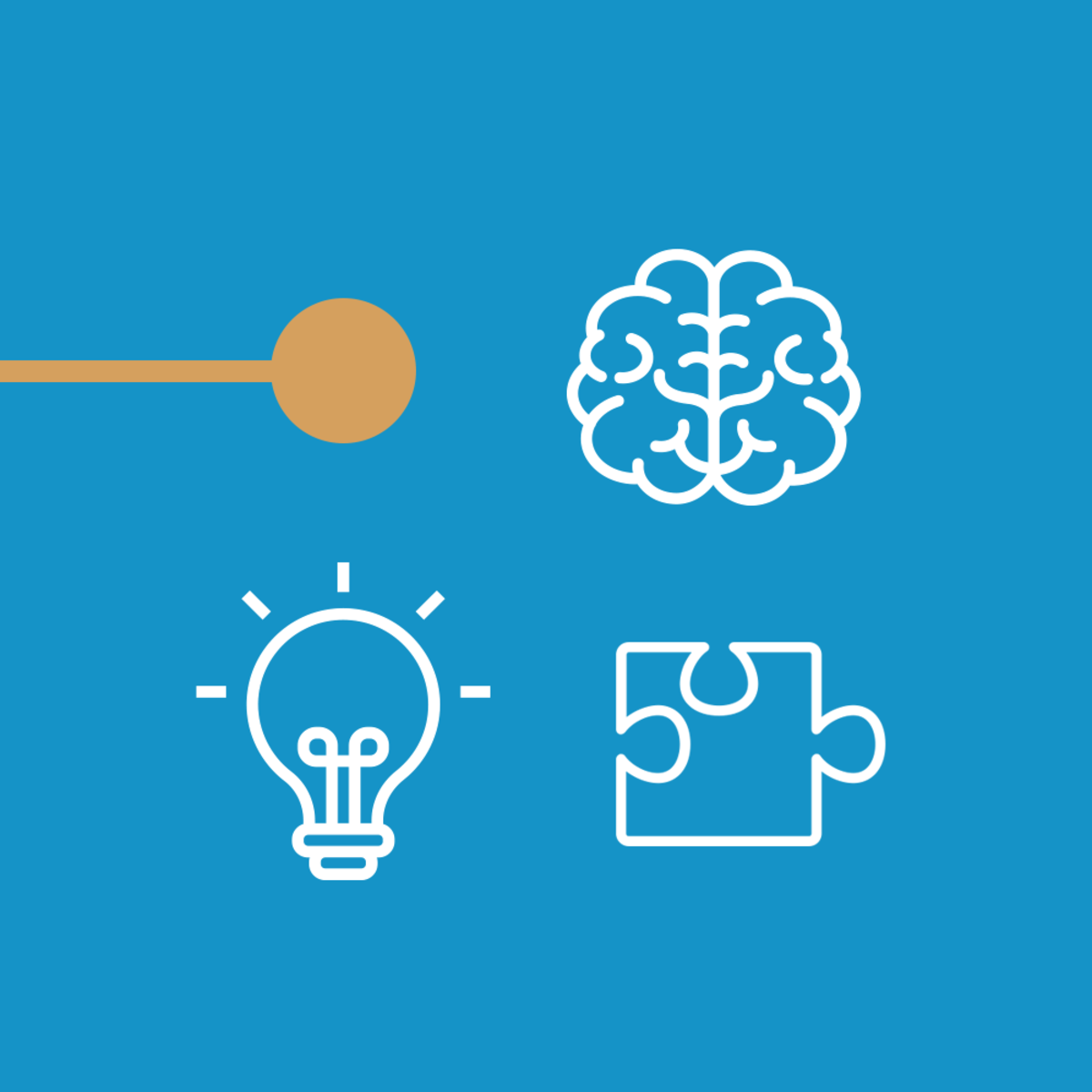Intelligence Analyst
Intelligence Analyst: A Comprehensive Career Guide
An Intelligence Analyst is a professional dedicated to collecting, analyzing, interpreting, and disseminating information to support decision-making. These analysts work across various sectors, transforming raw data and disparate pieces of information into actionable intelligence. Their work helps organizations understand threats, opportunities, and complex situations, enabling informed strategic choices.
The role often involves piecing together puzzles from incomplete information, requiring sharp analytical skills and the ability to think critically under pressure. Excitement in this career can stem from the direct impact analysis can have on significant events, the intellectual challenge of deciphering complex problems, and the dynamic nature of global security, business competition, or criminal activity. For those drawn to investigation and strategic thinking, it offers a deeply engaging path.
What Does an Intelligence Analyst Do?
Defining the Role and Scope
At its core, intelligence analysis involves synthesizing information from various sources to produce assessments and forecasts. This isn't just about reporting facts; it's about understanding the 'so what?' behind the data. Analysts evaluate the reliability of sources, identify patterns and trends, and develop hypotheses about future developments.
The scope is broad, covering areas like national security, military operations, law enforcement, corporate strategy, cybersecurity, and financial crime prevention. Regardless of the domain, the fundamental goal remains the same: to reduce uncertainty for decision-makers by providing timely, relevant, and accurate intelligence.
This profession demands a blend of rigorous methodology and creative thinking. Analysts must be adept at navigating ambiguity and structured analytical techniques to produce objective insights. The work is often iterative, involving continuous refinement of assessments as new information becomes available.
Key Responsibilities and Daily Tasks
Daily tasks for an intelligence analyst can vary significantly based on their specific role and sector. Common responsibilities include monitoring information feeds (news, reports, sensor data, human sources), conducting research on specific topics or targets, and using analytical software to process and visualize data.
Analysts spend considerable time writing reports, creating briefings, and presenting findings to stakeholders. This requires excellent communication skills, both written and oral, to convey complex information clearly and concisely. Collaboration with colleagues, other analysts, and data collectors is also a crucial part of the job.
Other tasks might involve developing intelligence requirements (identifying information gaps), managing intelligence databases, or utilizing specialized techniques like geospatial analysis or signals intelligence analysis, depending on the specific field.
This introductory course explores how digital technologies are changing the landscape and introduces the world of intelligence analysis.
Where Intelligence Analysts Work
Intelligence analysts are employed in a wide range of organizations. Government agencies, particularly those focused on national security, defense, and law enforcement (like the CIA, NSA, FBI, and military branches), are major employers. They assess foreign threats, counterterrorism efforts, and domestic criminal activities.
The private sector increasingly relies on intelligence analysts for competitive intelligence, risk management, market analysis, and cybersecurity threat assessment. Financial institutions employ analysts to combat money laundering and fraud, while large corporations use them to understand market dynamics and geopolitical risks affecting their operations.
Non-governmental organizations (NGOs) and international bodies also hire analysts, often focusing on areas like humanitarian crises, political stability, or environmental security. The skills are transferable across sectors, offering diverse career possibilities.
Military, Corporate, and Law Enforcement Roles
While the core analytical process is similar, the focus and context differ across domains. Military intelligence analysts typically support commanders by assessing enemy capabilities, intentions, and the battlefield environment. Their work directly impacts operational planning and force protection.
Corporate intelligence analysts focus on business risks and opportunities. This could involve analyzing competitors' strategies, assessing political risks in foreign markets, monitoring cybersecurity threats, or investigating internal fraud. The goal is to enhance the company's strategic position and protect its assets.
Law enforcement intelligence analysts support investigations by analyzing crime patterns, identifying criminal networks, and assessing threats within communities. They might work on cases ranging from organized crime and drug trafficking to terrorism and gang activity, helping allocate resources effectively and prevent crime.
Core Competencies of an Intelligence Analyst
Critical Thinking and Analytical Reasoning
Critical thinking is the cornerstone of intelligence analysis. It involves objectively evaluating information, identifying assumptions, recognizing biases (both in sources and oneself), and distinguishing between fact and inference. Analysts must question information, consider alternative explanations, and avoid jumping to conclusions.
Analytical reasoning complements critical thinking by applying structured methods to break down complex problems. This includes using logic, identifying patterns, evaluating evidence, and constructing sound arguments. Analysts employ various techniques, such as analysis of competing hypotheses or diagnostic reasoning, to ensure rigor in their assessments.
Developing these skills requires continuous practice and self-reflection. It involves being comfortable with ambiguity and understanding the limitations of available information. Strong critical thinkers produce more reliable and insightful intelligence products.
These courses focus specifically on developing critical thinking and analytical reasoning skills, essential for any aspiring analyst.
Understanding philosophical approaches and logical reasoning can further enhance analytical capabilities.
Data Collection and Interpretation Skills
Intelligence analysts rarely collect raw data themselves, but they must understand collection methods and sources to evaluate information effectively. This includes familiarity with open-source intelligence (OSINT), human intelligence (HUMINT), signals intelligence (SIGINT), geospatial intelligence (GEOINT), and measurement and signature intelligence (MASINT).
OSINT, involving publicly available information, has become increasingly crucial in the digital age.
Interpretation involves making sense of collected data, identifying relevant details, assessing source credibility, and understanding context. Analysts must be skilled at synthesizing information from diverse sources, recognizing discrepancies, and identifying intelligence gaps.
This requires strong research skills, information literacy, and often, proficiency in foreign languages or understanding specific cultural contexts depending on the area of focus. They need to discern signal from noise in vast amounts of data.
These courses provide practical skills in OSINT, a fundamental data collection technique for modern analysts.
These books delve into the practical aspects and history of intelligence gathering and tradecraft.
Proficiency in Analytical Tools and Technologies
Modern intelligence analysis heavily relies on technology. Analysts need proficiency in various tools to manage, process, analyze, and visualize data. This can include database software, statistical analysis packages, link analysis tools, and geographic information systems (GIS software).
Data visualization tools are essential for presenting complex findings in an easily digestible format through charts, maps, and dashboards. Familiarity with specific analytical platforms used within their sector (e.g., Palantir, Analyst's Notebook, Maltego) is often required.
Basic cybersecurity awareness and understanding of network fundamentals can also be beneficial, especially for roles involving cyber threats or digital data. As AI evolves, familiarity with machine learning concepts and AI-powered analytical tools is becoming increasingly valuable.
This course offers a foundation in using GIS, a common tool in certain intelligence fields.
Communication and Briefing Skills
Intelligence is useless if not communicated effectively. Analysts must tailor their communication style to their audience, whether it's a senior policymaker, a military commander, a corporate executive, or a fellow analyst. This involves clarity, conciseness, and precision.
Written communication skills are paramount for producing reports, assessments, and memos. These documents must be well-structured, logically argued, and supported by evidence. Analysts need to present findings objectively and clearly state their level of confidence in assessments.
Oral briefing skills are equally important for presenting key findings directly to decision-makers. This requires confidence, poise, and the ability to answer challenging questions succinctly. Effective use of visual aids often enhances briefings.
This course focuses on structuring and writing analytical business reports, a key skill for analysts in any sector.
Formal Education Pathways
Relevant Undergraduate Degrees
While there isn't one specific degree required, certain fields of study provide a strong foundation for an intelligence analysis career. Degrees in Political Science, International Relations, or International Studies offer valuable knowledge of global affairs, government structures, and geopolitical dynamics.
Other relevant degrees include History (for research and contextual understanding), Economics (for analyzing financial or economic intelligence), Criminal Justice or Criminology (especially for law enforcement roles), and Regional Studies (e.g., Middle Eastern Studies, East Asian Studies).
Increasingly, degrees in Data Science, Computer Science, Statistics, or Cybersecurity are highly sought after, reflecting the growing importance of technical skills and big data analysis in the field.
Graduate Programs and Specialized Certifications
A master's degree is often preferred, and sometimes required, for mid-level and senior analyst positions, particularly in government agencies. Specialized master's programs in Intelligence Studies, Security Studies, or Cybersecurity provide focused training.
Professional certifications can also enhance credentials. Examples include certifications in specific analytical software, cybersecurity (like CISSP), financial crime (like CAMS), or specialized intelligence disciplines (e.g., GEOINT certification).
While formal education provides a strong base, practical skills and experience are equally valued by employers. Continuous learning is essential throughout an analyst's career.
The Importance of Internships and Practical Experience
Internships offer invaluable practical experience and networking opportunities. Many government agencies and private sector companies offer internships specifically for aspiring intelligence analysts. These roles provide exposure to real-world analytical tasks and the work environment.
Participating in relevant extracurricular activities, such as analytical competitions, research projects, or simulations (like Model UN focused on security issues), can also demonstrate interest and build relevant skills.
Even part-time jobs requiring research, analysis, or data handling can be beneficial. Building a portfolio showcasing analytical writing samples or projects (even self-directed ones) can strengthen applications.
Research Opportunities for Advanced Study
For those pursuing a PhD, research opportunities in intelligence-related fields abound. Doctoral research might focus on topics like intelligence theory, specific regional security challenges, the effectiveness of analytical techniques, cybersecurity policy, or the history of intelligence.
Academia plays a role in advancing the field through theoretical development and critical examination of intelligence practices. PhD graduates may pursue careers in academia, think tanks, or senior research and analytical roles within government or the private sector.
Advanced research often involves interdisciplinary approaches, combining insights from political science, history, psychology, computer science, and other fields to tackle complex intelligence questions.
Online and Self-Directed Learning
Transitioning via Online Education
For career pivoters or those without a traditional academic background in a related field, online education offers a flexible and accessible pathway. Numerous online courses, certificates, and even full degree programs cover relevant topics like critical thinking, data analysis, OSINT, cybersecurity, and specific regional studies.
Transitioning requires dedication and a structured approach. It's not just about completing courses, but actively engaging with the material, practicing skills, and demonstrating competency. Building a portfolio of projects based on online learning can be crucial for showcasing capabilities to potential employers.
Making a career change can feel daunting, but leveraging online resources effectively can bridge knowledge gaps and build foundational skills. Remember that persistence and a proactive approach to learning are key. Ground yourself in the reality that it takes effort, but know that many have successfully used online learning to pivot into new fields.
OpenCourser is an excellent resource for finding relevant courses across various platforms. You can browse categories like Data Science, Cybersecurity, or International Studies to discover learning opportunities.
These comprehensive courses cover various levels of intelligence analysis and are suitable for self-paced learning.
Recommended Topics for Independent Study
Key areas for self-study include structured analytical techniques (SATs), cognitive biases and how to mitigate them, and logic and reasoning. Understanding probability and basic statistics is also crucial for interpreting data and assessing likelihoods.
Developing expertise in Open Source Intelligence (OSINT) techniques is highly valuable and achievable through self-study and online courses. Learning about specific regions, cultures, or political systems relevant to potential employers is also beneficial.
Staying current with global events, technological developments (especially AI and cybersecurity), and trends in specific industries (if targeting the private sector) is vital. Reading reputable news sources, academic journals, and think tank reports is part of ongoing professional development.
These courses offer focused learning on OSINT, a critical skill often developed through self-directed study.
These books offer insights into specific conflicts and intelligence operations, useful for contextual understanding.
Building a Portfolio Through Projects
Practical application solidifies learning. Aspiring analysts, especially those relying on online or self-directed study, should create projects to demonstrate their skills. This could involve conducting an OSINT investigation on a public topic, writing an analytical report on a geopolitical event based on open sources, or simulating a threat analysis for a hypothetical scenario.
These projects should showcase analytical rigor, structured thinking, clear writing, and proficiency with relevant tools (even basic ones like spreadsheets or simple visualization software). Document the process, methodologies used, and findings clearly.
Consider analyzing publicly available datasets related to crime, international trade, or social trends to practice data interpretation and visualization skills. Participating in online analytical challenges or contributing to open-source research projects can also add valuable experience to a portfolio.
Integrating Online Learning with Formal Education
Online courses can effectively supplement formal education. University students can use online resources to gain practical skills in specific software (like GIS or data analysis tools), explore specialized topics not covered in their curriculum (like specific types of intelligence or regional expertise), or prepare for certifications.
Online learning provides flexibility to delve deeper into areas of interest or strengthen weaker skill sets. For example, a political science major could take online courses in data analysis or cybersecurity to broaden their employability in the intelligence field.
Certificates earned from reputable online courses can be added to resumes and LinkedIn profiles, demonstrating initiative and specialized knowledge. Remember to check the OpenCourser Learner's Guide for tips on how to effectively integrate online learning into your educational journey and showcase your achievements.
The Hiring Process for Intelligence Analysts
Navigating Security Clearances
Many intelligence analyst roles, especially in government and defense contracting, require a security clearance. This process can be lengthy and rigorous, involving detailed background investigations, interviews, and checks into personal history, finances, and associations. Honesty and thoroughness throughout the application process are critical.
Factors that could potentially disqualify candidates include serious criminal history, significant unexplained debt, substance abuse issues, or associations deemed a security risk. Requirements vary depending on the clearance level (e.g., Confidential, Secret, Top Secret, TS/SCI).
Obtaining a clearance often requires sponsorship by an employer, meaning you typically apply for a specific job that requires one, and the employer initiates the process after extending a conditional offer. Understanding the requirements and being prepared for the investigation can streamline the process.
Common Interview Formats and Assessments
Interviews for intelligence analyst positions often go beyond standard behavioral questions. Expect analytical exercises, writing tests, and potentially panel interviews or scenario-based assessments designed to evaluate critical thinking, problem-solving, and communication skills.
Analytical exercises might involve reviewing a packet of information and producing a short written assessment or briefing under time pressure. Writing tests evaluate clarity, conciseness, and logical structure. Behavioral questions will probe past experiences related to teamwork, handling ambiguity, ethical judgment, and attention to detail.
Preparation involves practicing structured analytical techniques, refining writing skills, and thinking through examples demonstrating core competencies. Researching the specific agency or company and its mission is also crucial for tailoring responses.
Intelligence Analyst Career Progression
Entry-Level Roles and Responsibilities
Entry-level positions often carry titles like Junior Analyst, Research Assistant, Intelligence Specialist, or Operations Support Officer. Initial responsibilities typically involve supporting senior analysts, conducting background research, managing data, compiling information summaries, and learning specific tools and methodologies.
New analysts focus on developing foundational skills, understanding the intelligence cycle, and learning the specific requirements and priorities of their organization. They work under supervision, gradually taking on more complex analytical tasks as they gain experience and demonstrate competence.
This phase emphasizes learning tradecraft, building subject matter expertise in a particular area (geographic or functional), and understanding the organizational culture and reporting standards.
Mid-Career Advancement and Specialization
With experience, analysts progress to roles like Senior Analyst, Lead Analyst, or Team Lead. Mid-career professionals handle more complex analytical problems, often with greater autonomy. They may lead projects, mentor junior analysts, and develop deeper subject matter expertise.
Specialization often occurs at this stage, focusing on specific regions (e.g., China analyst), functional areas (e.g., counterterrorism analyst, cyber threat analyst), or methodologies (e.g., geospatial analyst, quantitative analyst). Opportunities may arise to manage small teams or serve as primary analysts for specific accounts or issues.
Strong performance, continuous learning, and demonstrated leadership potential are key to advancement. Networking within the intelligence community or relevant industry also becomes increasingly important.
This comprehensive course covers multiple levels, reflecting the progression an analyst might undertake.
Leadership and Senior Management Roles
Experienced analysts can move into leadership positions such as Intelligence Director, Chief Analyst, Branch Chief, or Senior Intelligence Officer. These roles involve managing larger teams, setting analytical priorities, overseeing intelligence production, and briefing top-level decision-makers.
Senior roles require strong leadership, strategic vision, and deep understanding of the organization's mission and the broader intelligence landscape. Responsibilities often include resource management, representing the organization externally, and shaping analytical standards and tradecraft.
Some senior analysts transition into policy advising roles, leveraging their expertise to inform strategic planning and decision-making at the highest levels of government or corporate leadership.
Lateral Moves and Adjacent Fields
The skills developed as an intelligence analyst are highly transferable. Experienced analysts may make lateral moves into related fields like risk management, strategic consulting, corporate security, cybersecurity threat intelligence, investigations, or due diligence.
For example, an analyst skilled in geopolitical risk assessment might move to a multinational corporation's risk department. A cyber threat analyst could transition to a cybersecurity firm's threat intelligence team. These moves often leverage specific subject matter expertise or technical skills gained during their analytical career.
Ethical and Legal Considerations
Privacy Concerns in Data Collection
Intelligence gathering, particularly using technical means or accessing personal data, raises significant privacy concerns. Analysts must operate within legal and ethical boundaries, respecting individual privacy rights while fulfilling their mission requirements. This requires careful judgment and adherence to established protocols.
The balance between security needs and privacy protections is a constant challenge, particularly with advancing technology and the vast amounts of data available. Analysts must understand the legal frameworks governing data collection and use in their jurisdiction.
Ethical training emphasizes the responsible handling of personal information and the potential impact of intelligence activities on individuals' lives.
This course touches upon the ethics of OSINT and information gathering.
Handling Classified and Sensitive Information
Many intelligence roles involve access to classified or highly sensitive information. Analysts are entrusted with protecting this information from unauthorized disclosure, which could harm national security, compromise sources, or damage organizational interests.
This requires strict adherence to security protocols, careful handling of documents and digital files, and discretion in discussing work-related matters. Security clearances involve ongoing responsibilities and adherence to regulations regarding travel, foreign contacts, and personal conduct.
Mishandling sensitive information can have severe consequences, including legal penalties and revocation of security clearances, effectively ending a career in the field.
Understanding Legal Frameworks
Intelligence activities are governed by complex legal frameworks that vary by country and sector. In the US, laws like the Foreign Intelligence Surveillance Act (FISA) regulate electronic surveillance for foreign intelligence purposes. In Europe, the General Data Protection Regulation (GDPR) impacts data handling, even for security purposes.
Analysts must understand the legal authorities and limitations relevant to their work. This includes laws related to surveillance, data privacy, international cooperation, and the use of specific intelligence collection techniques.
Compliance with legal requirements is non-negotiable and forms a core part of ethical intelligence practice.
Navigating Ethical Dilemmas
Intelligence analysts may encounter ethical dilemmas where legal guidelines are unclear or competing values are at stake. Examples include balancing the need for timely intelligence with the requirement for thorough vetting of sources, deciding how to report uncertain information, or navigating potential conflicts of interest.
Organizations typically provide ethical guidelines and training, but analysts often rely on professional judgment and consultation with supervisors or legal counsel. Maintaining objectivity, intellectual honesty, and a commitment to ethical principles is crucial.
Case studies and discussions about past ethical challenges help prepare analysts to navigate these complex situations responsibly.
These books explore real-world espionage and terrorism cases, often touching upon the ethical complexities involved.
The Impact of AI on Intelligence Analysis
Automation of Data Processing
Artificial Intelligence (AI) is increasingly used to automate the processing of vast amounts of data that would be overwhelming for human analysts. AI tools can quickly sift through text, images, and other data types, identifying keywords, entities, and basic patterns, freeing up analysts for higher-level tasks.
This automation helps manage information overload and speeds up the initial stages of the intelligence cycle. However, human oversight remains crucial to validate AI findings, understand context, and avoid biases inherent in algorithms or training data.
The future likely involves analysts leveraging AI as powerful assistants for data triage and initial processing, rather than AI replacing the core analytical function entirely.
AI-Driven Predictive Analytics
AI, particularly machine learning, offers potential for enhancing predictive analysis by identifying subtle patterns and correlations that humans might miss. Algorithms can model complex systems and generate forecasts about future events, such as potential conflict zones, cyber attacks, or market shifts.
However, predictive accuracy depends heavily on data quality, model assumptions, and the inherent unpredictability of human behavior and complex global events. Analysts must critically evaluate AI-generated predictions, understand model limitations, and integrate AI insights with their own expertise and judgment.
The role of the analyst shifts towards validating, interpreting, and contextualizing AI outputs, ensuring they are used responsibly in decision-making.
Human-AI Collaboration Models
The most promising future involves collaborative models where humans and AI work together, leveraging their respective strengths. AI excels at processing speed and scale, while humans provide critical thinking, contextual understanding, ethical judgment, and creativity.
Analysts will need skills in interacting with AI systems, formulating effective queries, interpreting AI outputs, and identifying potential biases or errors. This "human-in-the-loop" approach ensures that technology enhances, rather than dictates, the analytical process.
Training programs are evolving to incorporate AI literacy and skills in working alongside intelligent systems, preparing analysts for this collaborative future.
This course directly addresses the intersection of AI and OSINT.
Future Skill Demands
As AI becomes more integrated, analysts will need a blend of traditional analytical skills and new technological competencies. Critical thinking, domain expertise, and communication skills remain paramount. Additionally, data literacy, understanding AI/ML concepts, and proficiency with AI-driven analytical tools will become increasingly important.
Adaptability and a commitment to lifelong learning will be essential as technologies continue to evolve rapidly. Analysts who can effectively bridge the gap between technical capabilities and substantive analysis will be highly valued.
The demand for analysts who can ask the right questions, interpret complex data (including AI outputs), and communicate insights clearly to decision-makers is expected to remain strong, even as specific tasks become automated. According to some industry analyses, AI is expected to augment rather than fully replace analytical roles, shifting the focus towards higher-order thinking. (Accenture insights on Human-AI collaboration suggest this trend).
Global Opportunities and Challenges
Demand in Different Markets
Demand for intelligence analysts exists globally, but opportunities vary by region and sector. Established intelligence communities in North America and Europe offer numerous government and private sector roles. Emerging economies may see growing demand, particularly in corporate intelligence and cybersecurity, as businesses expand internationally.
International organizations (like the UN, NATO, or the World Bank) also employ analysts focused on global security, political stability, or economic trends. Opportunities depend on geopolitical events, economic conditions, and specific regional security concerns.
Researching specific country requirements, language needs, and market dynamics is crucial for those seeking international roles.
Cultural and Linguistic Challenges
Working on international issues requires navigating cultural nuances and often, linguistic barriers. Understanding different cultural perspectives, communication styles, and social norms is essential for accurate analysis and effective collaboration.
Proficiency in foreign languages is a significant asset, enabling direct access to local sources and deeper understanding of regional contexts. Analysts may need specialized training in specific languages or cultural awareness programs depending on their area of focus.
Misinterpreting cultural context or relying solely on translated materials can lead to analytical errors. Sensitivity and adaptability are key when working across diverse cultural landscapes.
These courses cover specific languages often relevant in international contexts. Explore Languages on OpenCourser for more options.
This book examines cultural clashes, relevant to understanding global dynamics.
Cross-Border Collaboration
Many pressing global challenges, such as terrorism, cybercrime, pandemics, and transnational organized crime, require cross-border intelligence collaboration. Analysts may work with counterparts in other countries, sharing information and coordinating efforts through established international partnerships or liaison roles.
This collaboration presents unique challenges, including navigating different legal systems, security protocols, institutional cultures, and potential trust issues. Effective communication and established frameworks for information sharing are vital.
Roles in international organizations or liaison positions often involve facilitating this type of cross-border cooperation.
Impact of Geopolitical Shifts
The field of intelligence analysis is inherently tied to geopolitics. Shifts in international relations, the rise and fall of powers, regional conflicts, and changing alliances directly impact analytical priorities and requirements.
Analysts must stay abreast of these shifts and adapt their focus accordingly. Events like major wars, economic crises, or technological breakthroughs can dramatically alter the intelligence landscape, creating new threats and requiring new analytical approaches.
Understanding historical context and major international relations theories (like Realism or Liberalism) provides valuable frameworks for analyzing current geopolitical trends and their implications.
These books explore specific geopolitical conflicts and historical periods relevant to understanding current global dynamics.
Frequently Asked Questions (Career Focus)
Is a security clearance mandatory for all roles?
No, a security clearance is not mandatory for all intelligence analyst roles. While essential for most positions within government intelligence agencies and defense contractors, many private sector roles (e.g., corporate intelligence, market analysis, some cybersecurity roles) do not require one.
However, roles dealing with sensitive corporate information or financial crime may involve rigorous background checks similar in scope, even if not formally designated as a government security clearance.
If targeting government roles, anticipate the clearance process. If focusing on the private sector, requirements vary widely by company and specific function.
How competitive is the job market?
The job market for intelligence analysts is generally competitive, particularly for entry-level positions in well-known government agencies. Budgets, geopolitical events, and technological shifts influence demand. According to the U.S. Bureau of Labor Statistics, related fields like management analysis show strong growth, suggesting demand for analytical skills, but specific intelligence roles depend heavily on government funding and private sector needs.
Candidates with strong analytical skills, relevant education (often advanced degrees), practical experience (internships), language proficiency, and technical skills (data analysis, cybersecurity, OSINT) have a competitive advantage.
Networking, tailoring applications, and highlighting specific skills relevant to the target sector are crucial for standing out.
Can military experience substitute for formal education?
Military experience, particularly in intelligence-related roles (e.g., military intelligence specialist, cryptologic linguist), can be highly valuable and sometimes substitute for or complement formal education, especially for certain government or contractor positions.
This experience provides practical training, exposure to intelligence operations, and often includes security clearances. However, many roles, especially senior or specialized positions, still prefer or require a bachelor's or master's degree.
Combining military experience with formal education often creates the strongest profile. Veterans can leverage educational benefits to pursue degrees after service, further enhancing their qualifications.
What industries hire intelligence analysts remotely?
Remote work opportunities for intelligence analysts have increased, particularly in the private sector. Roles in cyber threat intelligence, corporate intelligence, market research, and risk analysis may offer remote or hybrid options, especially for experienced analysts.
However, roles involving classified information or requiring access to secure government facilities typically necessitate on-site work. Fully remote positions are less common in traditional national security or law enforcement agencies due to the sensitive nature of the work.
Startups and tech companies focusing on data analysis, OSINT, or threat intelligence platforms are more likely to offer remote flexibility.
How does this role differ from data analysis?
While both roles involve analyzing information, intelligence analysis focuses specifically on producing assessments and forecasts to support decision-making related to threats, opportunities, or specific operational goals (security, military, business strategy, crime).
Data analysis is broader, often focusing on extracting insights from quantitative data to improve business processes, understand customer behavior, or support scientific research. Data analysts primarily work with structured data using statistical and programming tools.
Intelligence analysts often work with qualitative and incomplete information from diverse sources (human reports, news, images, technical intercepts) alongside quantitative data. They emphasize structured analytical techniques, source evaluation, and contextual understanding to reduce uncertainty for decision-makers in specific domains.
What are the mental health challenges in this field?
Intelligence analysis can be mentally demanding. Analysts may deal with stressful topics (terrorism, conflict, crime), work under tight deadlines, handle sensitive or disturbing information, and face pressure due to the high stakes of their assessments.
The need for constant vigilance, critical thinking, and managing ambiguity can lead to burnout or stress. In classified environments, restrictions on discussing work can sometimes lead to feelings of isolation.
Many organizations offer resources like employee assistance programs (EAPs) and promote mental wellness. Developing healthy coping mechanisms, maintaining work-life balance, and seeking support when needed are important for long-term well-being in this demanding field.
These courses touch upon psychological aspects relevant to awareness and potentially stressful situations.
Conclusion
A career as an Intelligence Analyst offers intellectually stimulating work with the potential for significant impact across diverse sectors. It demands strong analytical capabilities, critical thinking, effective communication, and often, technical proficiency. While pathways exist through formal education and online learning, success requires dedication, continuous skill development, and resilience. Understanding the ethical responsibilities and potential challenges is crucial. For those drawn to deciphering complex problems and providing clarity in uncertain situations, intelligence analysis can be a rewarding and dynamic profession.
Useful Resources
- Office of the Director of National Intelligence (ODNI): What is Intelligence? - Provides a foundational overview from the US perspective.
- CIA Careers: Intelligence Analysis - Offers insights into analyst roles within a major intelligence agency.
- FBI: Intelligence Analysis and the Intelligence Cycle - Explains the process used in law enforcement intelligence.
- Intelligence Analysis Courses on OpenCourser - Explore a wide range of online courses related to intelligence analysis.
- OpenCourser Learner's Guide - Find tips on self-directed learning, earning certificates, and structuring your study plan.









































